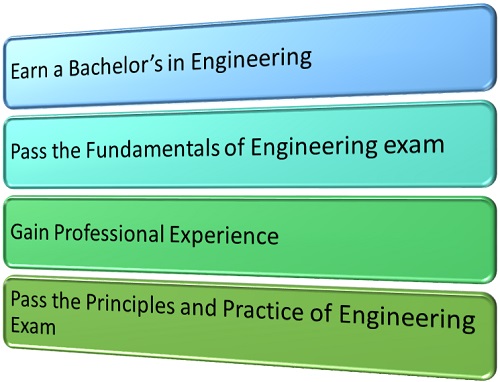Chemical engineering is one of the highest-paying bachelor’s degrees. It’s also a field where you don’t need a graduate education to get started. The majority – 82 percent – of chemical engineers report a bachelor’s degree as their highest level of education, according to O*NET. Although you may not need a master’s degree or doctorate to be a chemical engineer, you may need a Professional Engineer license if you want to take your career in certain directions, including management or private practice. For chemical engineers, acquiring a Professional Engineer license requires meeting education and experience conditions and passing two separate national licensing exams.
When Chemical Engineers Need a License
IMAGE SOURCE: Pixabay, public domain
In some disciplines of engineering, an engineering license is mandatory. You usually won’t need a license for entry-level roles, since experience is one of the requirements for licensure, but an employer may expect even an entry-level candidate to have taken or be preparing to take the first examination. In these fields of engineering where licenses are necessary, not getting your license promptly could mean falling behind in your career. Without a license, engineers in some fields find themselves limited to entry-level and early career roles no matter how much experience they have.
That’s not the case in chemical engineering, where you can perform a lot of job responsibilities without needing a license. Licensure in this discipline is less common than in other disciplines of engineering, according to the United States Bureau of Labor Statistics (BLS). You could go through your entire career in chemical engineering performing work in your field that is challenging and fulfilling and never be looked down upon for not pursuing licensure, while engineers in certain other fields don’t have that option.
There are, however, some compelling reasons why you may choose to pursue a Professional Engineer license as a chemical engineer. The biggest advantage of getting a license in the field of chemical engineering is expanding your career opportunities. Without a license, you will have to work under the supervision of an engineer who is licensed, according to The Houston Chronicle. Although the job opportunities that fit this description are better in the field of chemical engineering than in other engineering disciplines, this means that you will never have the opportunity to be the supervisor unless you get your license.
Working in management, whether as the supervisor of a team of chemical engineers in research and development or as the principal of an engineering firm, is likely to require a Professional Engineer license. Only a licensed engineer can sign off on, and take legal responsibility for, engineering projects. In the field of chemical engineering, you may also need a license if you want to work for yourself in any capacity, whether as a private practitioner who advertises or sells engineering services directly to the public or as an independent consultant working with other companies, the American Institute of Chemical Engineers (AIChE) reported.
Engineering educators, too, may be required to maintain a Professional Engineer license. Additionally, as industry preferences and legislation changes over time, it’s possible that chemical engineering candidates who have a license may perform better even when seeking roles that don’t strictly require a license.
Getting your Professional Engineer license can add to your value as a worker, according to the AIChE. Job search website Monster agrees, citing a survey that showed a five percent salary bump for engineers who are licensed.
How Chemical Engineers Get Licensed
Getting your Professional Engineer license usually requires four things, according to the BLS. You need a bachelor’s degree in engineering from an ABET-accredited college degree program. Once you finish your degree, you can take the first of the two exams needed for licensure, the Fundamentals of Engineering, or FE, exam. The next requirement is professional work experience. States can set different experience requirements for licensure, but most states require candidates for a Professional Engineer license to have at least four years of experience, the BLS reported. Once you meet the experience requirement, the last step to attaining engineering licensure is to pass the Principles and Practice of Engineering, or PE, exam.
The Principles and Practice of Engineering is a discipline-specific credentialing exam. The PE Chemical exam, the test used for licensing of chemical engineers, covers topics such as mass and energy balances, thermodynamics, heat transfer, chemical reaction engineering, fluids, mass transfer and plant design and operation. The PE exam is challenging even for engineers with strong skills, so you should plan to begin studying at least a few months before your exam is scheduled and spend at least 100 to 120 hours (or more) preparing for your exam to make sure you pass it the first time.
The PE exam consists of both multiple-choice questions and alternative item types, all administered by computer. Students generally spend a total of eight hours answering questions, in two four-hour blocks separated by a 50-minute break.
Additional Resources
What Degree Do I Need to Be a Chemical Engineer?
What Classes Will I Have to Take for a Degree in Chemical Engineering?
What Is the Benefit of a Chemical Engineering Degree Vs a Chemistry Degree?


